Festivel internacional Signos de la Noche - International Festival Signs of the Night - Tucumán, Argentina |
|
3° Festival internacional Signos de la Noche - Tucumán - December 1-4, 2021
19th International Festival Signs of he Night- Argentina
ONLINE EDITION
|
|

|
|
Ekain Irigoien |
Spain / 2020 / 1:10:22 |
Javier and Romerales sleep under one of the many cornices around the touristic Plaza de la Opera in Madrid. There, their friendship becomes a hymn to life, death and dignity.
|
|
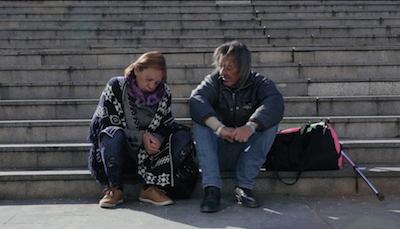
|
Jury Declaration:
We can't watch this movie without a feeling of discomfort because God’s Children speak and value the invisibles; the anti-heroes. Like a Cantar del mio Cid we listen to his stories and his philosophy. A delicate film with respectful and intimate images. And incredible characters that make us reflect on life, mistakes, virtues and real love.
|
|
Director Statement
:
If this film can help to change the perspective on the homeless, it will have won the best of the prizes it could get.
|
|
SIGNS AWARD
The Signs Award for Documentary honors films, which express in an original, convincing and sensitive way the perturbing aspects of reality.
|
|
|
Isa Willinger |
Germany / 2019 / 1:27:00 |
The robots are at our doorstep. Scientists as well as tech-visionaries are certain that in a few years robots will be an integral part of our everyday life. But humanoid robots are more than just another gadget. Bearing a resemblance to living creatures in their conduct and looks, they are more like new beings on our planet. We are the Robots, shows robots interacting with humans in everyday-environments already today. What will we gain from this new technology? And what will we lose?
|
|
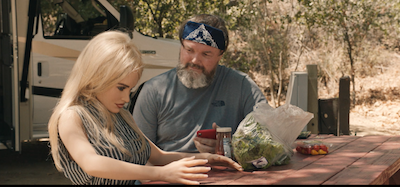
|
Jury Declaration:
Isa Willinger’s “Hi, AI” is a marvelous, revealing study of the crossroads where humanity finds itself at the present: between the human world as we know it and a sure future with human-looking robots. Full with kindness, humor and depth, this documentary is a testimony to which we will look back in years ahead to remember what is was like when AI was still an imperfect promise and an unlikely threat. And it is also a thought-provoking cinematic experience about our humanity, our need for love, company and the present fight against loneliness.
|
|
NIGHT AWARD
*
The Night Award for Documentary honors films, which represent reality in an ambivalent and enigmatic way, avoiding stereotypes of representation
and simple conclusions.
|
|
|
Yoni Goldsetin, Meredith Zielke |
United States / 2020 / 1:29:00 |
Once upon a time, there was an oblong asteroid, named Brasilia, gravitating between Mars and Jupiter, discovered by a French astronomer at the end of the 19th century. Once upon a time, there was red laterite earth from which an ideal city bearing the same name was extracted in a thousand days, under the supervision of Oscar Niemeyer between 1956 and 1960, and whose refined architecture favoured triangles with opposing peaks, to capture the telluric and cosmic energies. The Brazilian capi-tal is a “cosmo-futurist” utopia become reality, which has attracted a spate of cults (masonic, spiritualist, etc.), inspired writers such as Clarice Lispector—for whom it represented “the heart of [her] dreams”—, in which the Esperanto invented by Ludwik Zamenhof is spoken, as if this abstract city, rising out of nowhere, considered itself as the new Babel of humanity. Woven together from texts, archives and encounters, A Machine to Live In is an ambitious film-essay in which Yoni Goldstein and Meredith Zielke invent a fascinating documentary cosmology on the genesis and potential futures of this city that is absolutely unique in the world.
| |
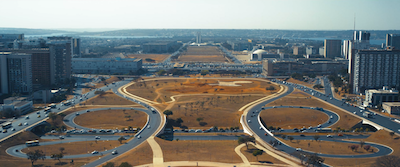
|
Jury Declaration:
The cinematic psychoanalysis of a city whose artificial existence defies reason. A film like a trip from which you return changed.
|
|
JURY AWARD FOR POWER AND INSPIRATION
|
|
|
Antonio Prata |
Switzerland / 2019 / 0:56:21 |
Giuseppe lives in his van in the heart of Paris and has long since stopped communicating with his fellow men. His time, his physical space as well as his mental space are dedicated to the birds that inhabit the cities, abused animals that the old man defends and feeds, suffering threats and attacks.
|
|
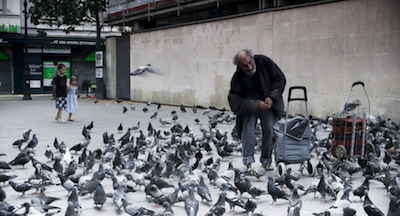
|
Jury Declaration:
Paris would not be Paris without its lights, its monuments and... without their pigeons. Monsieur Pigeon touches on the enigma of a city, of its prejudices and contradictions. We discover a passionate personality that makes us rethink all our schemes and human relationships.
|
|
Director Declaration:
Giuseppe Belvedere è un esempio per me di lotta e di resistenza contro il pregiudizio e l’omologazione dell’umanità. Mi piace credere o sperare che come lui a Parigi, ci siano tante altre persone in tutto il mondo che a loro modo, con la loro passione, posano.
|
|
EDWARD SNOWDEN AWARD
The Edward Snowden Award honors films, which offer sensitive (mostly) unknown information, facts and phenomena of eminent importance,
for which the festival wishes a wide proliferation in the future.
|
|
|
Daniel Schweizer |
Switzerland / 2020 / 01:27:00 |
Two tribes of Amazon Indians accept an invitation from foreign NGOs to travel to the land of the Whites to defend their rights. Their journey reverses the usual perspective of ethnography as they turn their gaze on our world, offering a shamanic critique of capitalism.
|
|
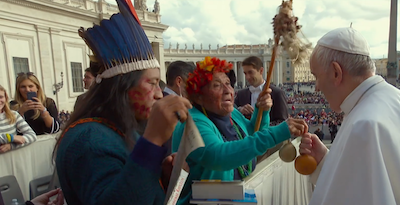
|
Jury Declaration:
Who will help those who possess neither power nor resources and just want to continue to live in harmony with nature? The protagonists don’t accuse and neither does the film. As we travel the world together, we discover the sad truth behind smiles and false promises.
|
|
A Loss of Something Ever Felt
|
|
Carlos Eduardo Lesmes Lopez |
Estonia, Colombia, Sweden / 2020 | 1:22:00 |
A woman travels from Estonia to Colombia to look for her drug-addicted and alcoholic half-brother. Six months have passed since Lauri, a drug addict living in Colombia, called his mother Hille back home in Estonia, asking for money. After phoning embassies and police departments without an address or ID to go on, she hits a dead end. Desperate, she asks her daughter Eeva to fly to Bogotá and look for him. Bewildered as to how to search a city of 9 million, she reluctantly sets off. She was Lauri’s closest confidant when they were children, but a decade of his tumultuous addiction drove them half a world apart. Walking the streets he might have slept on, seeing the dangers he must have faced, she begins to know her brother again. But as sightings crop up through a network of outreach volunteers, Eeva soon fears what she might find. Lurching between hope and panic, her journey takes an unexpected turn that transforms this compelling chase into an unforgettable mission of the heart.
|
|

|
Jury Declaration:
Carlos Eduardo Lemes Lopez’s documentary with impeccable form –the photography of Bogotá and Cali´s difficult neighborhoods has never felt more real and crispier– explores with clear eyes and profound humanity the emotional and ethical dilemmas of a sister in search of her addict brother gone missing in a foreign country. Torn between duty and a fractured relationship, Eave faces us with the difficult question of whether one is able to love and help an addict, and if one even wants to do it. A real tour-de-force.
|
|
Director Statement:
I’m just really Gladis to share the film with audiences. Through sharing stories, even if heart wrecking, we see other lives and worlds, which makes our own world richer. It’s important to look into the marginal worlds and feel them, to remove the marginality by embracing our fellow humans. It allows us to feel each other and then be slightly less alone.
|
|
MENTION FOR THE SIGNS AWARD
|
|
|
Patricia Wiesse Risso |
Peru / 2020 / 1:22:00 |
In 1984, soldiers of the Peruvian army, who were fighting the terrorist movement Sendero Luminoso in the Peruvian province of Huancavelica raped many teenage girls and young women from the area, including Magda. When it transpired that she was pregnant, the family placed the blame on her. Many women who suffered this fate were despised and rejected. Decades later, Magda is participating in a lawsuit that she and other women have filed against their former assailants so they can regain something of their dignity. Three friends who have been through the same experience visit Magda to lend their support. As they peel potatoes together, they recall the traumatic events they had to keep to themselves for so long. One of the friends admits that she feels a sense of rejection towards her two sons conceived by rape: “I look at them in anger and think they’ll grow like them, that they’ll also rape.” This empathetic documentary finally gives the women the attention and respect which they have been denied for so long.
|
|

|
Jury Declaration:
At times lovely and harrowing, this documentary set against the beautiful backdrop of the Andean mountains reminds us of the power of justice and resilience. Magda and her friends are full of life despite the horrors they have suffered. Never patronizing or condescending with the victims, the colors, their laughter and their cheerful friendship is a reminder that we must never lose our humanity in the fight against injustice, machismo and callous power structures.
|
|
MENTION FOR THE SIGNS AWARD
|
|
|
Clara Casian |
United Kingdom (Japan) / 2021 / 1:20:23 |
"The Earth Asleep" discovers hidden truths and forgotten histories about the 2011 Great East T?hoku earthquake and tsunami, the most powerful disaster ever recorded in Japan. The documentary includes invaluable archive research, testimonies, ceremonial rites, spiritual beliefs, bringing a sensitive understanding of loss and trauma. Image, poetry and music intertwine in an evocative rhythmic montage of archive and original visual elements, with a score beautifully rendered and inspired by Japanese instruments, and a poem on screen highlighting the role of the metaphor, to mark the 10th year commemoration of the lost and missing people.
| |
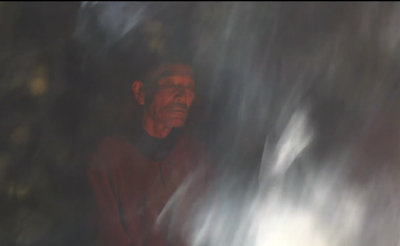
|
Jury Declaration:
Ten years after the devastating Tsunami hit Japan, the wounds it created are far from healed. This film captures stories of mourning and the sometimes unusual ways to cope with it.
|
|
MENTION FOR THE NIGHT AWARD
|
|
|
Samantha Farinella |
USA / 2019 / 00:19:08 |
Without a Scratch is an experimental short documentary that takes the viewer on the journey of the queer filmmaker’s experience with a pituitary tumor, exploring the interconnectedness and complexity of healing, memory and love.
|
|

|
Jury Declaration:
In Without a Scratch, Samantha keeps a diary of her life and fears, being aware that she may be dying. She works with a delicate collage of images, sounds and perception of time. It makes us feel his anguish and his touches of humor. And thanks to them he makes us internalize his story by becoming part of it.
|
|
MENTION FOR THE EDWARD SNOWDEN AWARD
|
|
|
Violeta Paus |
Chile / 2020 / 0:30:00 |
Drought, pollution by industries called “sacrifice zones”, and massive waste are the biggest conflicts related to freshwater on the Chilean territory during the last decades. An analogy between women and territory shows how, through the water conflict, capitalist/extractivist models result in inequalities and injustices.
|
|
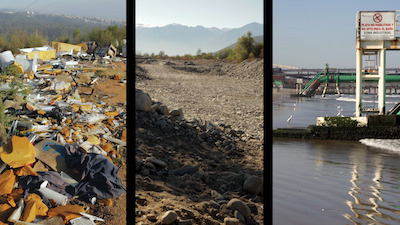
|
Jury Declaration:
The fierce women in this documentary show the perils of drought, pollution and waste in two small towns and a city in Chile. Through an intimate look at how they are affected, with poignant details that resonate long after we have watched the film and introducing the notion of “sacrifice zones”, Water Silhouettes challenges us to react to a reality that is sickening.
|
|
Director Statement:
We are very grateful for the THE EWARD SNOWDEN AWARD MENTION. Fresh water is not only affected by a single problem but is the sum of all human actions: monocultives, industries and all the garbage that we produce with our consumption models. This film has an ecofeminist perspective and seeks a way of creating cinema where the viewer has multiple visions and therefore a less linear narrative, leaving time for the viewer, while watching the film, to draw their own conclusions.
|
|
|
|
|